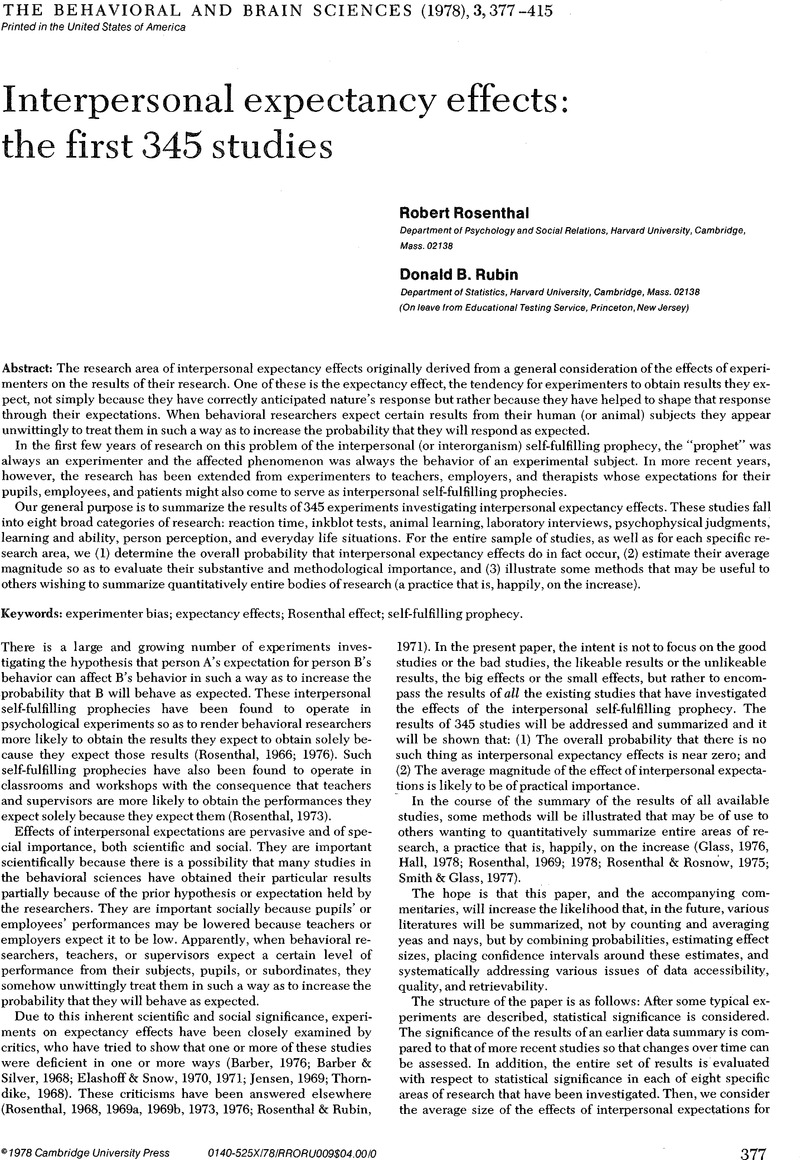Crossref Citations
This article has been cited by the following publications. This list is generated based on data provided by Crossref.
Smead, Valerie S.
and
Chase, Clinton I.
1981.
Student Expectations as They Relate to Achievement in Eighth Grade Mathematics.
The Journal of Educational Research,
Vol. 75,
Issue. 2,
p.
115.
Shapiro, David A.
and
Shapiro, Diana
1982.
Meta-analysis of Comparative Therapy Outcome Research: a Critical Appraisal.
Behavioural Psychotherapy,
Vol. 10,
Issue. 1,
p.
4.
Cooper, Harris M.
1982.
Scientific Guidelines for Conducting Integrative Research Reviews.
Review of Educational Research,
Vol. 52,
Issue. 2,
p.
291.
Spitz, Herman H
1999.
Beleaguered Pygmalion: A History of the Controversy Over Claims that Teacher Expectancy Raises Intelligence.
Intelligence,
Vol. 27,
Issue. 3,
p.
199.
McNatt, D. Brian
2000.
Ancient Pygmalion joins contemporary management: A meta-analysis of the result..
Journal of Applied Psychology,
Vol. 85,
Issue. 2,
p.
314.
Gilder, Thandiwe S. E.
and
Heerey, Erin A.
2018.
The Role of Experimenter Belief in Social Priming.
Psychological Science,
Vol. 29,
Issue. 3,
p.
403.
Beffara Bret, Brice
Beffara Bret, Amélie
and
Nalborczyk, Ladislas
2021.
A fully automated, transparent, reproducible, and blind protocol for sequential analyses.
Meta-Psychology,
Vol. 5,
Issue. ,
Kamboj, Kannu Priya
and
Konantambigi, Rajani M.
2024.
Ecological framework of social development and parental socialization strategies in Indian urban slums.
Current Psychology,



